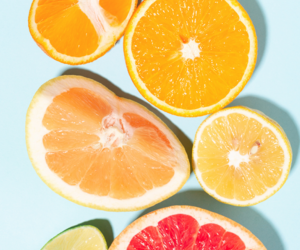By Ned Hancock, Chairman of the Florida Citrus Commission
As consumers continue to stock up on groceries and household goods during this period of uncertainty, there are a number of factors driving their decision-making process. According to Nielsen, consumers are increasingly seeking shelf-stable foods and a broader category of health and safety products to help cope with orders to stay home.
For many, this means turning to e-commerce, perhaps for the first time. Nielsen reports that 20 percent of recent e-commerce shoppers are new users, including more senior citizens and low-income shoppers than before. And, due to supply-chain constraints, they are making smaller purchases more frequently with 16 percent more trips and 8 percent smaller baskets.
The FDOC launched an e-commerce campaign aimed at driving sales of 100% orange juice in January and continues to reach consumers this way, building upon momentum gained earlier this year. The campaign has driven more than $1.95 million in attributed sales and reached more than 167 million impressions with a Return on Ad Spend (ROAS) of $3.67. Instacart continues to perform well with average daily sales of $21,500. Though, as consumers fill their stock at home, sales are beginning to steady.
The FDOC is also focused on reaching consumers where they spend the majority of their time. Today, that’s increasingly on video streaming services. “Stay Home” orders and working from home has contributed to consumers in TV households watching more than double the minutes of streaming services in a recent week than during the comparable week in March 2019, with more than 156 billion minutes of streaming content consumed, according to a new Nielsen Streaming Media data analysis.
The FDOC campaign includes OTT (Over The Top) videos that play before the start of a show on several streaming platforms. These videos provide messaging about 100% orange juice, placing it top of mind for consumers who may be contemplating their next grocery order. In combination with FDOC digital ads, the campaign has reached audiences more than 36 million times this year with a video completion rate (meaning consumers didn’t opt to “skip” the ad) of more than 96 percent, well above industry standards.
Throughout FDOC marketing campaigns, messaging is factual, responsible and respectful to consumers navigating the current environment. You will not see the use of the words “boost” or “enhance” in reference to the immune system as there is no clear and consistent scientific research that supports a particular food or nutritional supplement providing these qualities. The focus is on continuing to educate consumers on the role 100% orange juice can play as part of a healthy diet and how regular consumption of 100% orange juice can provide key nutrients that help support a healthy immune system.
All marketing messages are developed with the support of FDOC’s Scientific Research Department and in accordance with FDA and FTC guidelines. Core messages regarding vitamin C include:
- It is well established that vitamin C plays an important role in immunity. Studies suggest that keeping blood and tissue vitamin C at optimal levels may be important to help support normal immune function throughout the year. An easy way to do this is to include an 8-ounce serving of OJ daily as part of a healthy diet. Eight ounces of OJ is an excellent source of vitamin C, providing more than 100% of the Daily Value.
- Vitamin C can play an important role in various aspects of immune system function, beginning with skin health which serves as a “first line of defense” barrier to keep the body healthy. One 8-ounce glass of 100% orange juice daily can help support skin health.
- 100% orange juice offers multiple nutrients that complement each other to help support normal immune function. One 8-ounce glass of 100% orange juice is an excellent source of vitamin C and a good source of potassium, folate, and thiamin. Fortified orange juice serves as an excellent source of calcium and a good source of vitamin D.
The marketing team relies on this core messaging to guide in the creation of all marketing content with continued collaboration from the Scientific Research team. The FDOC is happy to work with individual growers or brands to help ensure messaging is clear, consistent and research-supported across the industry.
While the situation continues to evolve, the FDOC team is keeping an eye on trends and making shifts in programs and campaigns, as necessary. Staff continue to work, from our homes and offices, in support of this great industry.
Originally published in the Florida Citrus Mutual Triangle
